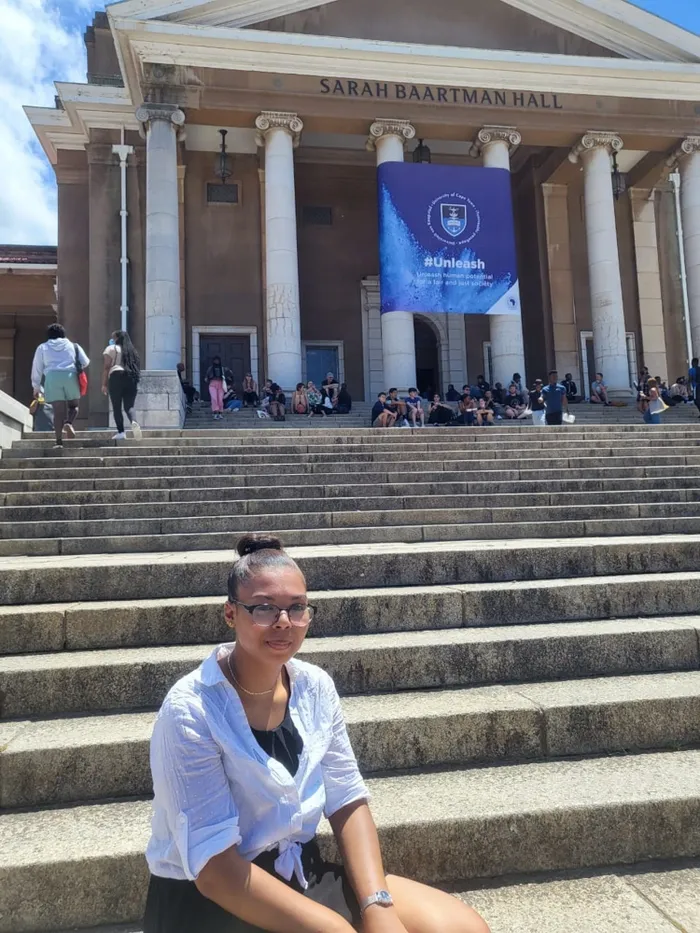UCT helps in bursary blunder: Top Mitchells Plain matric girl gets gap funding

OVERJOYED: Aneeqah Sarels, 17, on campus
UCT has stepped forward to assist a top Tafelsig matriculant after the National Student Financial Aid Scheme (NSFAS) allegedly bungled her bursary application and denied her funding.
Aneeqah Sarels, 17, smiled from ear to ear this week when she received an email from management at the University of Cape Town, saying they read about her struggle in the Daily Voice and wanted to assist her.
Aneeqah and her father Klaas were left heartbroken after NSFAS rejected her application for a state-funded bursary despite being provided with proof that the family earns below the R350 000 annual income threshold.
Aneeqah, who obtained six distinctions and an average of 86%, was named the top matriculant at Cedar High School in Rocklands and had been accepted at Stellenbosch University, UWC and UCT to study law.
Due to the NSFAS rejection, she could not attend Stellenbosch University as she needed to pay the registration fees upfront, so she started attending UCT in the hope that her bursary will be approved on appeal.
“On Wednesday I received an email saying they read the story and congratulated me on my results. They said they can help me with GAP funding and gave me forms to fill in while I await the outcome of my appeal with NSFAS,” says Aneeqah.
“I am really happy that my story shed some light on what is happening and we are still waiting for NSFAS to respond to the appeal.”
UCT spokesperson, Nombuso Shabalala, confirms they are assisting and says: “The University will engage NSFAS on the NSFAS application based on the information received in the GAP funding application, should the information indicate her as being NSFAS eligible.
“We will otherwise offer gap funding based on eligibility. UCT’s GAP funding provides financial assistance for students from families that are in the missing middle, gross family income between R350 001 and R600 000 per annum.”

NSFAS spokesperson, Kagisho Mamabolo, said yesterday that due to the Protection of Personal Information Act and the National Credit Act, they are prohibited from sharing personal information of students or parents with the media, while matric results are not a determining factor in the assessment of NSFAS funding.
However, Aneeqah’s father willingly supplied his payslip to the Daily Voice.
Mamabolo added: “For 2022 appeals, NSFAS communicated to all the unsuccessful applicants.
“They were told the reasons why they were unsuccessful, and they were given the list of documents they needed to submit in order for NSFAS to assess the application for the second time.
“Without these documents, NSFAS will not be able to reassess the application for the second time.
“Due to the system being offline – we communicated to our affected students that the appeals will be given an extension period to allow students to appeal online.
“NSFAS uses third party verification of income submitted, which includes SARS data.
“In a case where the financial circumstances of parents have changed, we need proof that indicates that the parent income has been reduced since March 2021. The additional document required from the father is the 2021 ITA34 form.”